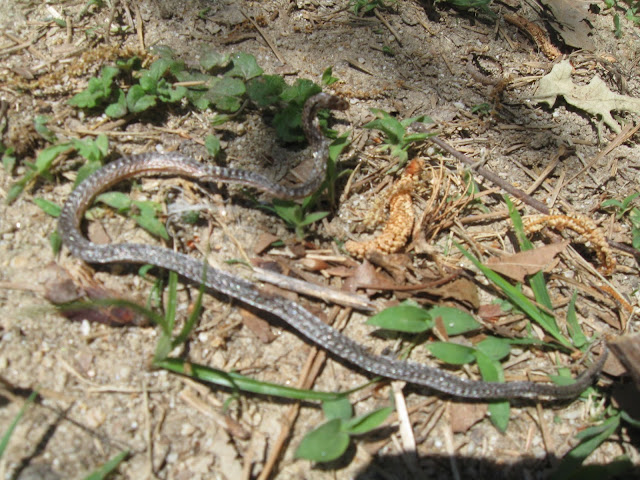I don't think that Rosemary and I would be revealing anything new to most of you with the observation that, for faithful Catholics, this year's presidential election is something of a moral quandary. Perhaps Archbishop Charles Chaput of Philadelphia
put it best, citing the words of a friend of his, that this year's choices are either a "vulgar, boorish lout and disrespecter of women, or a scheming, robotic liar with a lifelong appetite for power and an entourage riddled with anti-Catholic bigots."
 |
Rosemary and I attending a McCain rally in La Crosse in 2008 during
a happier election cycle, when we believed in a candidate enough
to be enthusiastic about his candidacy. |
Indeed, both Rosemary's and my Facebook news feeds are increasingly filled with comments and article "shares" from friends who've come to wildly varying conclusions. For various reasons, some are voting for Trump, others for Clinton, and still others for one of the plethora of third-party candidates. Still others have prayed long and hard about the matter and have concluded that they will not vote for anybody at all--including me and Rosemary.
Why a whole blog post to explain what turns out to be a non-endorsement? Well, it came down to the sting of an email that both of us received last night. The sender of this email claimed that a priest had said from the pulpit that, in a situation like the present presidential election, a Catholic has the moral duty to vote for the "lesser of the two evils."
The priest's words--if indeed they were really said as reported--stung for couple of reasons. The first is the directness of the priest's comments, as there is no doubt from the context that he was saying that a good Catholic must vote for Trump, leaving little room for such conscientious objectors like me and Rosemary. Does that make us unfaithful Catholics? Sinners and imperfect in more ways than we can count, most certainly; me and Rosemary unfaithful Catholics, most certainly not. But the second reason is even more fundamental: it is utterly false that a Catholic ever, in any circumstance whatsoever, has the moral duty to commit, or even to participate in, an evil action, no matter how the lesser evil stands in relation to another possible greater evil.
The example that I use in the philosophy class that I teach often involves a hostage situation--certainly a familiar trope from any number of action thrillers--where the hostage taker, with his hand on the detonator, threatens to blow up a building with a large number of people in it unless you kill just a single individual. The death of a single person, of course, is the lesser of the two evils, and one could easily make the argument that killing that single individual would be a vastly better outcome than the death of all the people in that building.
If my students object--rightly, I might add--that they would never pull the trigger, then I make the example more extreme: What if that one person whom you kill to save all those people is himself a seasoned criminal, perhaps even a despotic dictator like Josef Stalin or a mass murderer like Ted Bundy? What if there are a hundred people in that building, including members of your own family? What if there are a thousand people in that building? Or a hundred thousand? As much as our instinct is to pull the trigger, the Catholic Church has never taught that one is morally obligated to commit any evil, no matter the proportion of good that could come of it. The ends do not justify the means. Sure, the Church in plenty of magisterial documents speaks of the toleration of a lesser evil, but never of the commission of that evil.
What does this mean in regard to the presidential election? The implication is that, translating Archbishop Chaput into softer language, both Trump and Clinton are poor choices, and both have significant liabilities that could result in evils in which, by our vote for either one, we could become complicit. For Clinton, one could go on and on about everything from her intention to stack the Supreme Court to protect Roe versus Wade to her clearly stated intention to further limit religious freedoms. For Trump, there is his oft-repeated promise to "deport them all" with no respect to families or lives already built in this country, or his alarming foreign policy that may or may not involve the use of U.S. firepower in ways that would bring about the deaths of many thousands of innocents in the Middle East and that could earn us animosity and lead to further terrorist attacks. Further in regard to Trump, a vote in his favor may make one complicit in any number of the terrible things his clearly impulsive nature may very well bring about if he is granted executive power.
Of course, the immediate response of any one of our friends voting for Trump--or even for Clinton simply to keep Trump out of office--is that they intend the potential good that their respective candidate may bring about, not the potential evil.
That's precisely why the "lesser of two evils" argument is such an unCatholic way to think of it. The Catholic who is struggling with these two very poor choices--and who, apart from guileless campaign operatives, does not describe them otherwise--is the "principle of double effect." This is the principle--to use another example from my philosophy class--that permits life-saving medical treatment for a pregnant mother even when it may be harmful, or even deadly, to her unborn child. The idea is that the treatment is carried out with the intention of saving the mother's life, not with the intention of terminating the unborn child's life. For this reason, treatments that directly attack the unborn child--for example, the use of the powerful chemical methotrexate to dissolve a living embryo implanted in a woman's fallopian tube instead of in her uterus--would not be permitted because the death of the child would become the primary, rather than the unintended secondary, effect.
This is not just a matter of semantics. Yes, the doctor knows that he is indirectly bringing about the death of the unborn child through his actions, say in starting chemotherapy treatment in favor of the mother, but he winces, and he dreads the decision that he has to make, doing his best, if his conscience is sensitive, to focus on the good that he directly intends and effects, and that is at least proportionately as great, one hopes even greater, than the bad.
This act of weighing primary versus secondary effects has to be the way that any Catholic who chooses either Trump or Clinton thinks about the matter. Does Trump's likely vastly superior pro-life selection for the Supreme Court outweigh the further carnage he may bring about in the Middle East, or does it outweigh the way that he is going to tear lives apart if he is successful in deporting millions of people who've formed productive, stable lives here in the U.S.? Conversely, does the fact that Clinton can only do so much to destroy the moral fiber of our country in four short years through her Foundation cronyism and vigorous support of Planned Parenthood's agenda outweigh the secondary, unintended, entirely regrettable effect of her Supreme Court pick--or maybe even picks, given the ages of some of the justices--who will legislate from the bench for decades in furthering the progressive, secularist agenda?
Surely this is the way our serious-minded friends, regardless of their political bent, are thinking about their unpalatable choices this year. Put metaphorically, they're holding their noses and closing their eyes to the secondary effect, just like the doctor does in starting chemotherapy to save the life of the mother.
And far be it from me and Rosemary to condemn these noble efforts. They are not like the action thriller hero who ends up directly committing the smaller evil action of shooting the despotic dictator to prevent the greater evil of the deaths of a building full of thousands of innocents. The ends don't justify the means, and shame on any priest who implies that they do. Rather, our serious-minded friends who end up pulling the lever for Trump or Clinton--well, perhaps more the former than the latter, but that's the topic for another post--are like the doctor who starts chemotherapy--or rather, like the mother who okays it in order to save her own life. They do not intend the evil that their candidate may do, but for whatever reason they find the potential good to outweigh the potential bad, and they choose the former and close their eyes and hold their noses towards the latter.
But in my philosophy class, I also distinguish between ordinary and heroic virtue. Specifically, I bring up the example of
St. Gianna Beretta Molla, the 20th century Italian mother and physician who declined live-saving cancer treatment in order to save the life of her unborn child. It's no accident, as I reflect on this example, that my Facebook news feed includes pictures of a few friends who recently spent time with the very child who owes her life to the heroic choice of her mother. Certainly the Catholic Church did not require St. Gianna to refrain from undergoing chemotherapy. Certainly she could have focused on the primary effect of saving her own life, and there would have been nothing morally culpable or blameworthy in that choice, even if saving her own life sadly led to the death of her unborn daughter.
Likewise, far be it from us to disrespect the choice of one friend, for example, who said that he is voting for Trump in order to keep Clinton from being elected, because he knows that if Clinton is elected she will change the Supreme Court in such a way that Roe vs. Wade will not be overturned in our lifetime. But for our own part, we cannot look at Trump, that vulgar, inconstant, boorish lout, that disrespecter of human dignity feminine or otherwise, who may or may not do what he says, depending how much time he's spent on Twitter, and give him our seal of approval.
Likewise, we are far from disrespecting the choice of another friend, who will be voting for Trump in North Carolina in order to keep the electoral college balanced between Trump and Clinton, and who is hoping that Utah will go for Evan McMullin, in order to force the 12th amendment into play when neither majority-party candidate receives 270 electoral votes. Nor do we disrespect the forward-looking choice of another friend to vote for Jill Stein in the hopes that a third-party candidate will break the 5-percent popular vote minimum for federal funding in the next presidential election. But for our own part, in the first instance the likelihood is far too low and its occurrence may even incite violence, and in the second instance the potential good of a third-party bringing about reform just isn't commensurate to the resulting evil.
For me and Rosemary, we simply can't do it. Don't get me wrong--we're not professing to be morally superior people, or to be possessors of heroic virtue of the likes of St. Gianna. But we will stand our ground against the sting of the priest's supposed comments. First of all, our position is carefully thought out and prayed about, and any priest worth his salt, any Catholic layperson of prayer, would be willing to accept and respect our conscientious choice. And secondly, our choice not to signal our support for either vastly imperfect candidate and his/her problematic agenda is well within the Catholic tradition--ramifications (i.e., the election of the worst of two terrible candidates) be damned. We will do our part, and we'll let God figure out the rest.





























































































